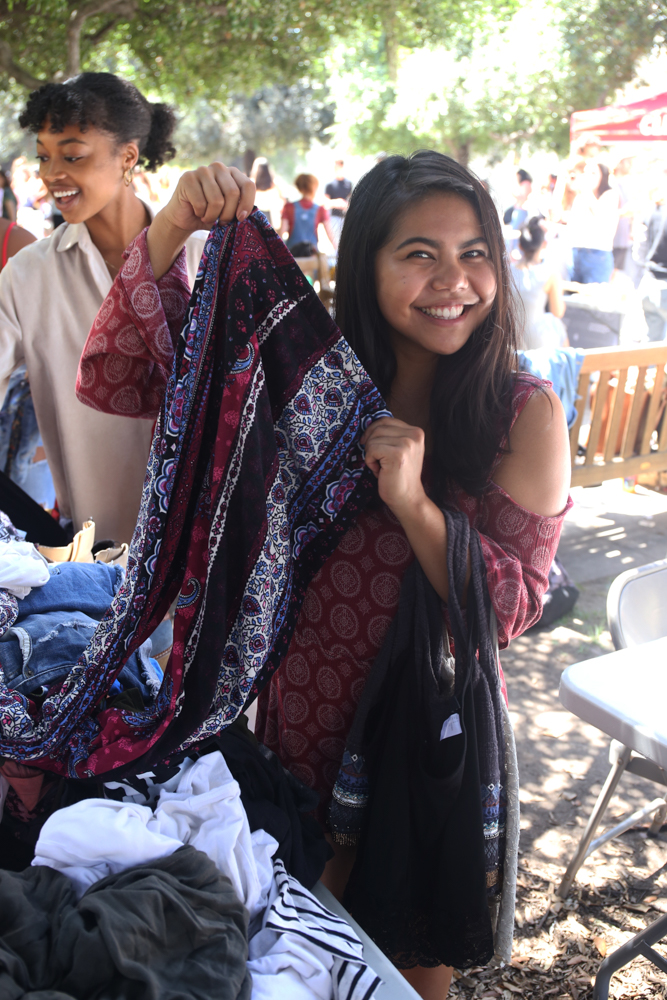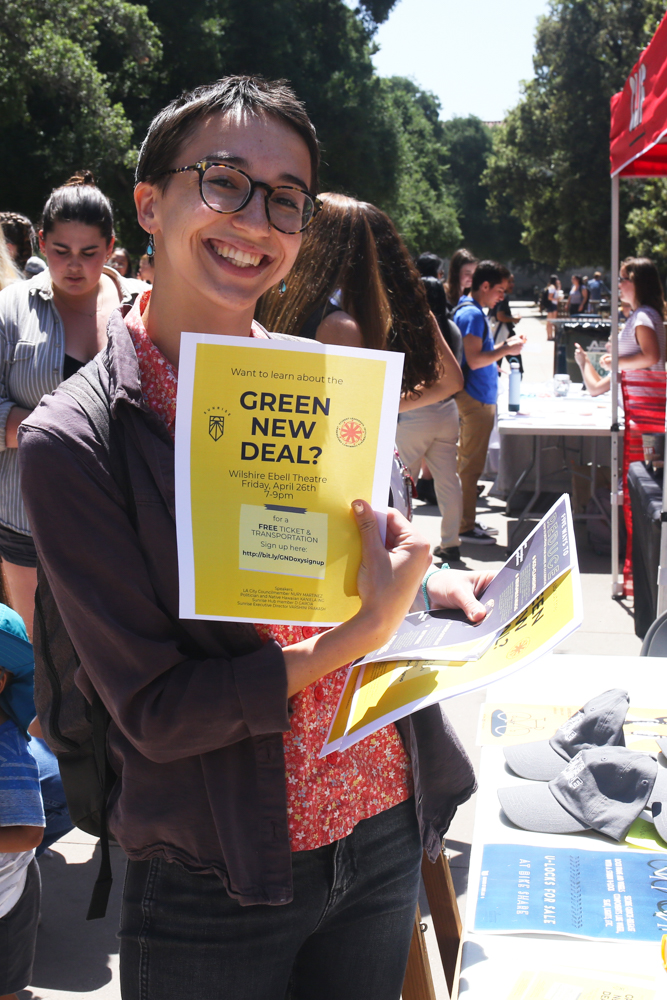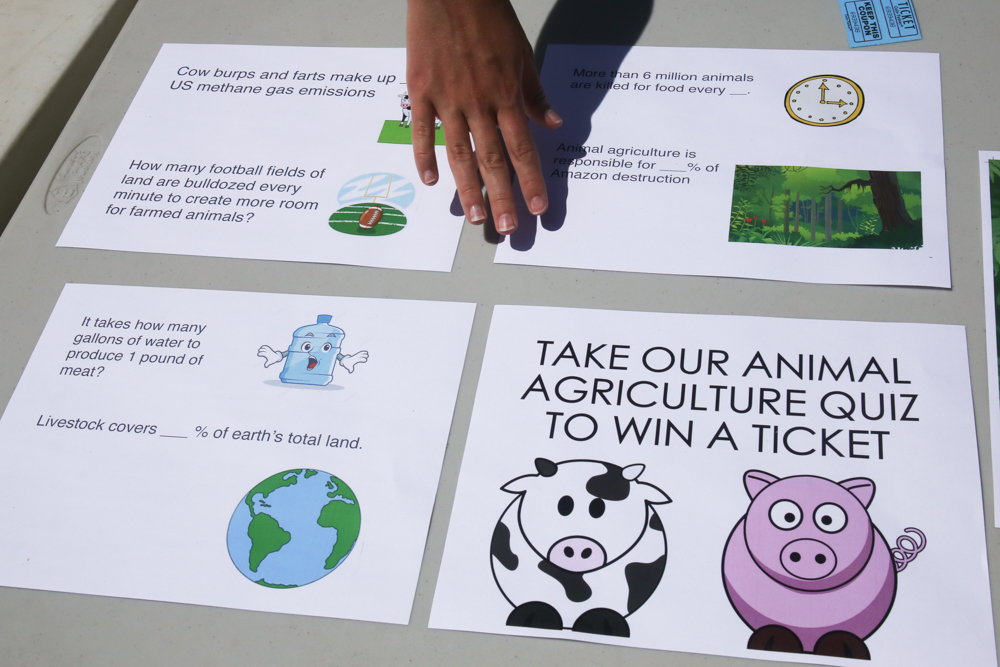
Earth Month at Occidental highlighted the importance of environmental justice, sustainability and conservation through speakers and events on the quad. Beginning March 30 and spanning the entire month of April, months of planning and student input went into programming, which included lectures on shade as an issue of equity and concluded with a sustainably-sourced dinner at the Food, Energy and Sustainability Team (FEAST) main garden.

Sammy Herdman (senior) has been deeply involved with planning for Earth Month as the lead intern for Sustainability Research and Implementation for Campus Dining as well as being the president of the Renewable Energy and Sustainability Fund (RESF), both of which she has been a part of since her first year. Herdman sees this month of activities and events as a way for the Occidental community to learn about and get involved with key environmental issues and new club programming.
“Earth Month is a time when a lot of clubs and organizations launch new sustainable initiatives,” Herdman said. “For example, the Green Bean re-launched its reusable mug program last April by providing prizes as incentives, funded by RESF, which really increased the amount of participation. This year, Public Health Club purchased ‘fill it forward’ stickers, also funded by RESF. The stickers have a bar code on them, and each time you fill up your water bottle, you scan the barcode, and that amount of water is donated to a charity that provides clean water to people who don’t have it accessible.”
The exciting initiatives taking place and being introduced during Earth Month come as a product of years of hard work on the part of students like Herdman, and administrators like Sustainability Coordinator Jenny Low.
When Low began her time at Occidental, there was a week of programming about sustainability and environmental consciousness. Earth Week was also a completely student-run and organized event that lacked administrative support. This is where Low stepped in to give the student clubs and organizations some guidance.
“I feel like at Oxy, there is a lot of passion, action and will to move sustainability forward on our campus from the students, staff and faculty,” Low said. “My role is more to help guide student initiatives by looking at the logistical and administrative pieces to make a program or event happen on campus.”
In her first year involved in planning Earth Week, Low began facilitating meetings earlier in the year as a way of connecting student organizations and creating more effective programming.
“I got all of the student clubs together and started having brainstorming sessions. The clubs started asking each other about ideas and planning things together and formed partnerships,” Low said. “It was just giving them a more coordinated platform that made things run smoother.”
This preemptive planning allowed Earth Week to transform into a much lengthier program: Earth Month.

Herdman also recalls the transformation Low helped facilitate and the implications of such changes. Herdman attributes the ability to create a whole month of awareness to a shifting understanding about the importance of sustainability among the student body.
“The expansion into Earth Month is symptomatic of a general trend in the Oxy student body that Jenny Low, the sustainability coordinator, has noticed, which is that each year there seems to be a greater number of students passionate about environmental justice, conservation and similar topics,” Herdman said. “Thus, more clubs and orgs that promote those environmental issues are popping on campus, allowing April to become a month of collaboration and awareness amongst different organizations that represent many facets of the environmental movement.”
Herdman has run the Earth Month Quad Fair for the past few years. This year’s fair took place April 23. While Herdman believes most students on campus are familiar with the idea of sustainability, not all of them understand the significance of environmentalism on human lives.
“For example, purchasing organic fruit may seem trivial to many students, but organic produce verifies that that food was grown and harvested by laborers who were not exposed to carcinogenic pesticides and herbicides,” Herdman said. “Everybody knows that oil refineries are unsustainable, but not everyone knows that they are way too often located in low-income communities, which exposes the nearby residents to polluted air and water.”

Programming like the Quad Fair is done in an effort to educate Occidental students about a person’s impact on the environment and spur individual action, according to Herdman.
![]()






























